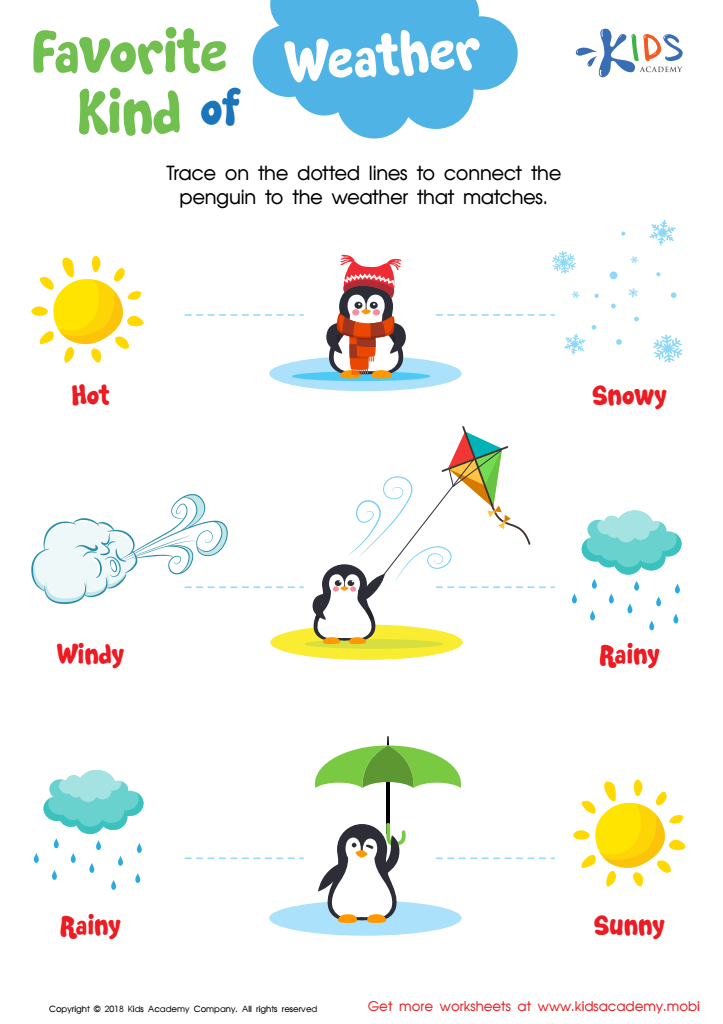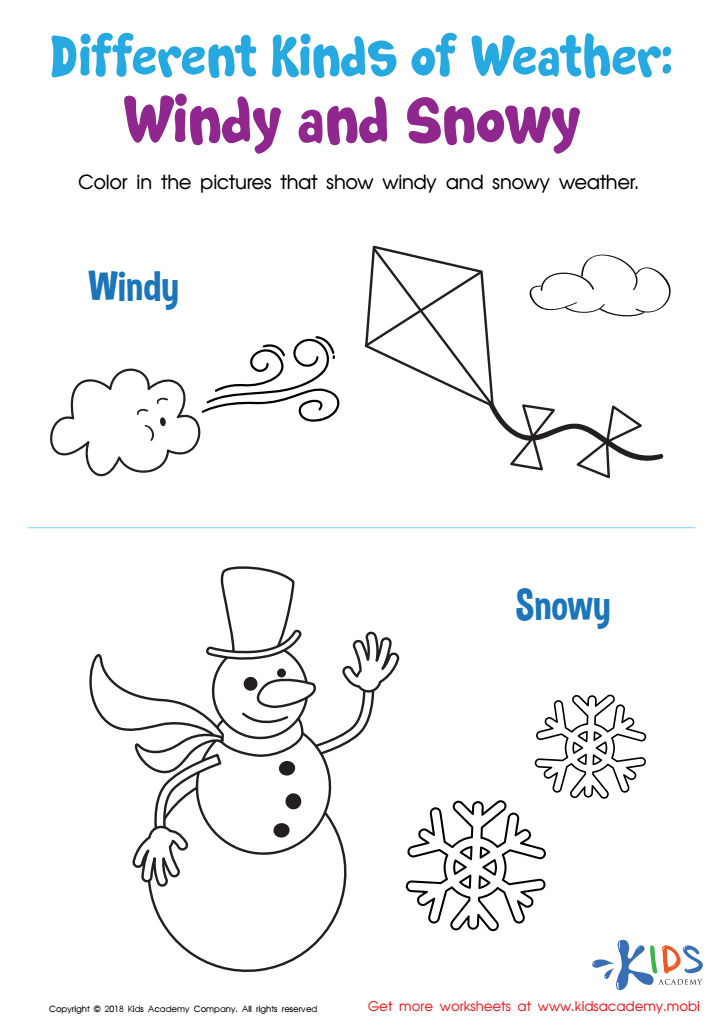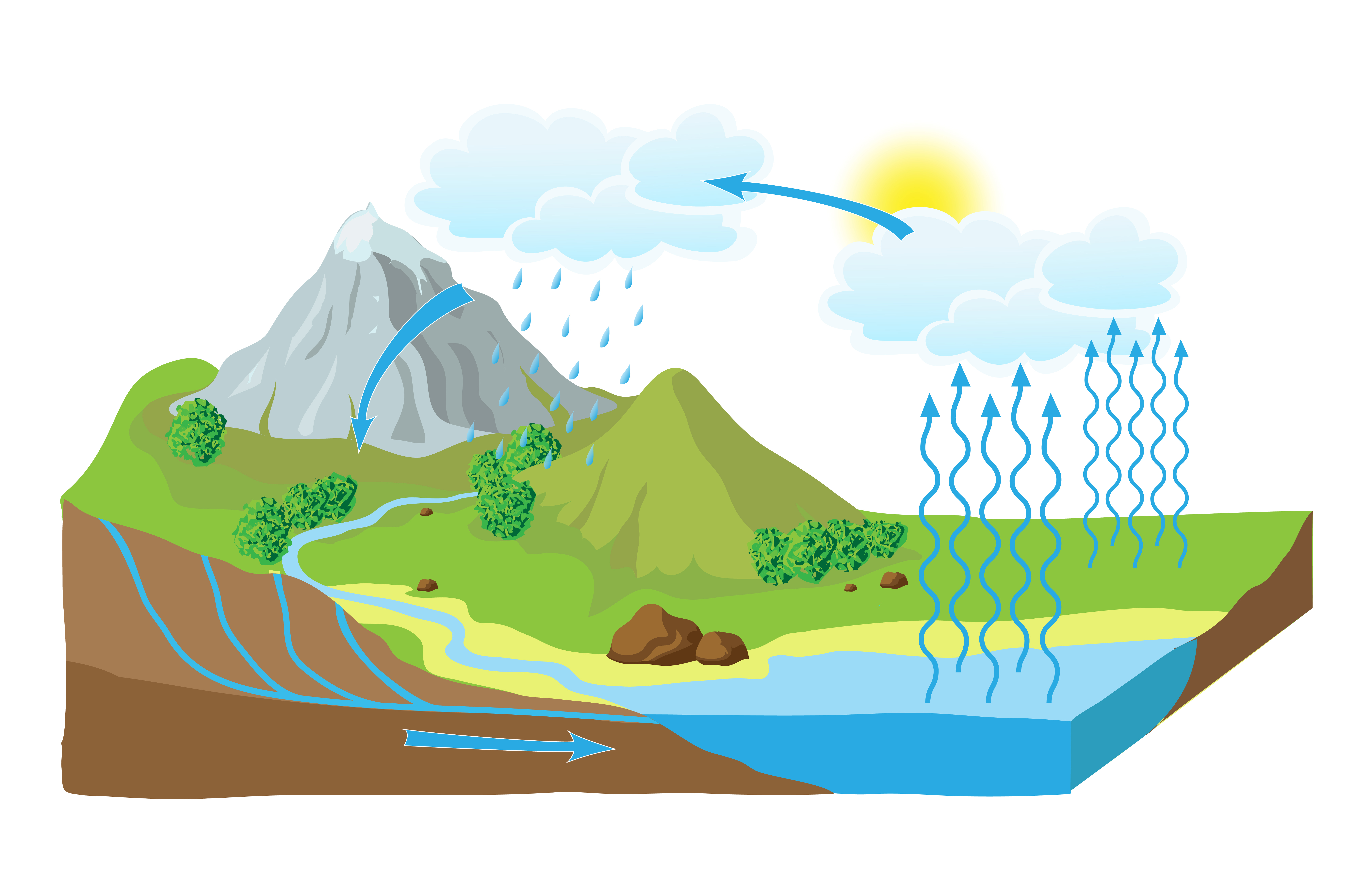Weather Vocabulary Science Worksheets for Ages 5-6
3 filtered results
-
From - To
Introduce your little learners to the wonders of weather with our engaging Weather Vocabulary Science Worksheets, designed specifically for ages 5-6. These printable worksheets offer fun and interactive activities that help young children understand essential weather terms and concepts. From sunny and rainy to windy and snowy, kids will enhance their vocabulary and observational skills while having a blast. Ideal for both classroom and home use, our worksheets support early science learning, aiding in the comprehension of different weather conditions. Foster a love of science and boost your child's vocabulary with our age-appropriate and captivating weather worksheets.


Favorite Kind of Weather Worksheet


Different Kinds of Weather: Windy and Snowy Worksheet
Parents and teachers should care about introducing weather vocabulary science to children ages 5-6 because it fosters early curiosity and understanding of the natural world. This foundational knowledge helps young learners grasp fundamental concepts about weather patterns, seasons, and their effects on daily life. For instance, knowing terms like "sunny," "rainy," "cloudy," and "windy" not only builds their vocabulary but also enables children to express observations and communicate effectively about their environment.
Weather vocabulary enhances cognitive skills such as categorization, prediction, and reasoning. By discussing elements like temperature and precipitation, children learn to make connections between weather conditions and appropriate clothing choices or indoor and outdoor activities. This also introduces basic scientific principles, setting the stage for more complex concepts in later years.
Furthermore, understanding weather conditions is crucial for safety. Teaching children to recognize severe weather signs can prepare them for emergency situations, making them more resilient and responsive. Incorporating weather-related activities — such as charting daily weather, engaging in simple experiments, or reading weather stories — can make learning both engaging and practical.
In essence, weather vocabulary science nurtures early scientific inquiry, practical life skills, and safety awareness, forming a well-rounded component of early childhood education.

 Assign to My Students
Assign to My Students




















